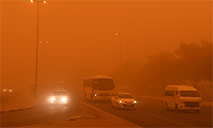Economists see downshift on horizon for U.S. spending
WASHINGTON, May 31 (Xinhua) -- While U.S. consumers have been spending at high levels, a slowdown in consumer spending is on the horizon, economists said.
After two years of limiting their travel due to COVID-19 lockdowns and other restrictions, Americans have hit the roads and skies again in growing numbers -- and spending big bucks to do it.
Record amounts of government stimulus during the pandemic, along with reduced spending on entertainment, travel and related activities, led to Americans collectively saving 2.7 trillion U.S. dollars, according to estimates by Moody's Analytics.
Despite the worst inflation in 40 years, current data shows people have a strong drive to travel, Ellen Edmonds, director of external communications at the American Automobile Association (AAA), told Xinhua.
In March, U.S. travel spending surged to 95 billion U.S. dollars, which amounted to just 5 percent below the levels seen in 2019 before the pandemic, according to the U.S. Travel Association, a Washington, D.C.-based organization representing all segments of travel in the United States.
United Airlines last month forecast it would see its highest quarterly revenue in history in this year's second quarter. In January, major travel booking site Expedia Group conducted a poll which found that over 80 percent of U.S. adults planned a minimum of one vacation over the next half year.
But the money will eventually run out, and economists said that point is on the horizon.
Wells Fargo &Co. economists Tim Quinlan and Shannon Seery wrote in a recent note that while people continue to consume despite high inflation, "we're getting closer to the end of the lollipop."
While there are signs of easing inflation, the U.S. Federal Reserve's expected rate hikes could cause consumers to curtail their spending over the next several quarters, according to the two Wells Fargo economists.
Indeed, some economists noted the possibility of some level of economic slowdown due to higher interest rates, and people worried about their jobs are less likely to spend.
Economists said lower-income households may have already used up all their savings, or will do so in the coming months, especially amid high gas and food prices, according to The New York Times (NYT).
One indicator of this is credit card balances and similar types of debt. They grew at around 35.3 percent of annual rate in March, the biggest one-month increase since 1998, according to data from the Federal Reserve cited by the NYT.
Economists noted such debt is not sustainable.
Bernard Baumohl, chief global economist at The Economic Outlook Group, told Xinhua that while Americans are spending on vacations, travel represents "non-recurrent" spending. Once that is finished, consumers will focus their spending on staple goods, Baumohl noted.
Such goods require people to shell out far less cash than expensive airline tickets, hotels and dining out in pricey tourist destinations.
Americans' personal savings rate dropped to 4.4 percent in April, the lowest since September 2008, according to data released Friday from the Bureau of Economic Analysis of the U.S. Department of Commerce.
Photos
Related Stories
- U.S. urged to stop fabricating, spreading lies and rumors to smear China
- U.S. policymakers misjudged inflation threat until it was too late: WP
- China unveils a package of policies to support economy
- China emerges from Omicron outbreak with improving PMI data
- War economy destroying private economy in U.S., says Pulitzer Prize winner
Copyright © 2022 People's Daily Online. All Rights Reserved.










